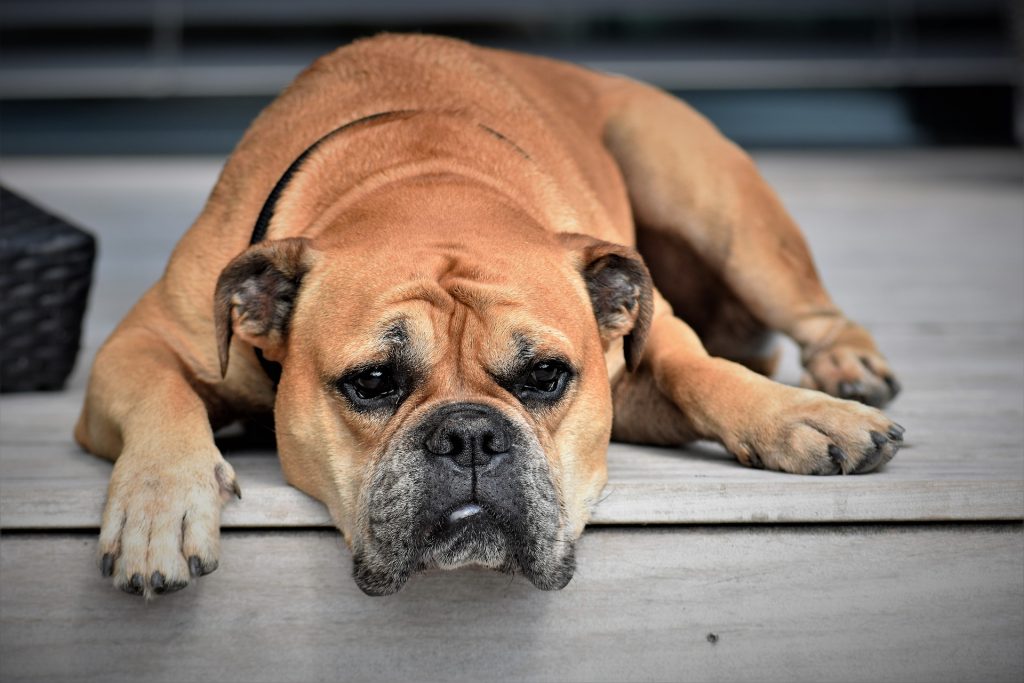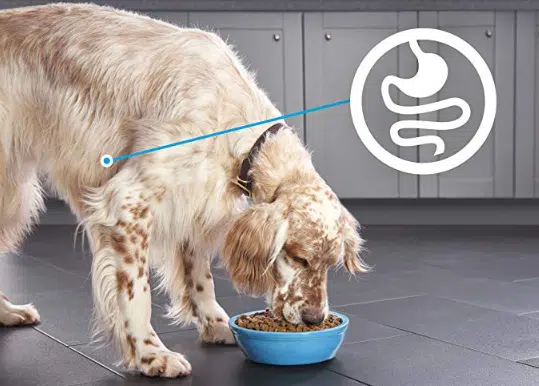This post may contain affiliate links. If you use these links to buy something we may earn a small commission. Thanks.
MY PUPPY HAS DIARRHEA BUT SEEMS FINE AND STILL PLAYFUL
A home with a dog is truly a hub of joy and oneness. The canine forms a deep connection with the family and that’s why he will guard your door and raise alarm when he notices an intruder. With their mutual desire of a playmate, the relationship between your baby and a pup even becomes stronger that they’ll spend a lot of time together talking and playing. In such an instance, you must ensure the young dog is healthy so that it doesn’t pass any infection to your baby.
- My Dog Has Diarrhea But Acts Fine, What Should I Do?
- Best Dog Food For Sensitive Stomach And Diarrhea
Sometimes it can be very easy to tell your pet is unwell by just looking at his overall build or behavior. This, nevertheless, is not always the case and you might notice your puppy has diarrhea but is fine physically and still playful. In most of the occurrences, the condition is usually nothing serious but that doesn’t mean you should ignore it. Just as in people, dogs are different and the cause of your pet’s loose stool might be different from that of your neighbor.
Causes of Diarrhea in Puppies
Similar to older dogs, diarrhea is a common problem in pups and it can occur because of various reasons. The causes can be from acute conditions which last for a short period, or due to chronic disease which usually has a long-lasting effect.
Acute Diarrhea
Have you ever consumed too many candies or sour milk on a Monday? How did that go for you? I bet you spent most of your night hour wide awake and kicking around the bathroom door.
Well, that condition can get your pup as well. The symptom is what we call acute diarrhea and is characterized by a loose, watery stool that makes your little friend have a bowel movement now and then.
Acute diarrhea often occurs suddenly and can last for a day or two. It’s mostly caused by a virus, parasites, toxins, or bacteria from elements like contaminated food. Although it’s messy and sickening to stare at, acute diarrhea is not that bad. You can treat your puppy right from home, though as long you know what you are treating.
One way you can be sure you’re treating the diarrhea of your Papillon puppy with the right medication is by the nature of the stool. Although we will look at it later, the color and softness of diarrhea indicate specific conditions with your puppy. Therefore, monitor closely what comes from the animal and don’t conclude she’s all fine because her tail is dancing high in the air.
Chronic Diarrhea
Chronic diarrhea can be very tricky to diagnose as it can get your pup through various disorders. Also, you might even find your puppy has diarrhea but is fine physically and is behaving normally. This happens because a chronic disease eats the body bit by bit which then makes the symptoms visible as it grows.
Compared with acute diarrhea, Chronic diarrhea can be challenging to treat, particularly if the disease-causing ailment is in the final stages. For your puppy to recover fully, you’ll need to include different diets and medications, which can be very expensive or even unsuccessful.
Uh-ooh, Chill-out. I don’t mean your pup won’t blow the candles of his six birthday if he has one of the diseases. Proper treatment can support the young pet for years even if he has chronic kidney failure which is incurable.
But instead of waiting up to a time when a disease is incurable, why not manage it in the acute stage when it’s potentially reversible?
Before you subject your dog to any kind of treatment, nonetheless, you have to know what exactly is causing the symptom. Otherwise, you will be subjecting your pet to more damage with the wrong medication.
Some of the common chronic conditions that can cause diarrhea in your puppy to include:
Stress: This can be triggered by conditions like a change of environment or being left alone for long.
Dermatitis: The disorder is mostly caused by allergens from foods or Intestinal parasite which leads to gastrointestinal disorders.
Colitis: involves irritation of the colon (also called large intestine) and it can eventuate from various disorders, including parasitosis.
Irritable Bowel Syndrome: caused by anxiety, antibiotics, allergies, fiber deficiency, etc. The pup has frequent diarrhea and the stool has mucus.
Stomach ulcers: these ulcers can occur due to a variety of reasons, including gastrointestinal obstructions, accidental poisoning, or adverse drug reaction. You can identify the disorder from the black tarry stool.
What Does My Puppy’s Stool Mean?
As I had stated earlier, you have to know what’s causing diarrhea in your puppy to ensure the treatment you gives him works effectively. One way you can identify this is by the color and consistency of the defecated stool.
Watery diarrhea– signals the presence of a parasitic or viral infection, such as parvovirus. It can be also a sign that your puppy has stress.
Black tarry stool– indicates the digestive system has old blood somewhere in there. It could also mean the gastrointestinal tract has an injury which might have occurred from indiscriminate eating (consumption of non-food items like rocks).
Soft stool with no blood or mucus– this means the cause of the diarrhea is a change in diet or indiscriminate eating. The symptom can also mean there are intestinal parasites such as giardia, which are present.
Soft, runny stool with blood/ blood clots– this symptom might need immediate attention of a veterinarian. The fresh blood potentially means there’s current bleeding or perforation of the intestinal wall. This can either be caused by indiscriminate eating or erupted ulcer/ tumor.
Watery stool with visible eggs or worms means your puppy has intestinal parasites. Puppy Has diarrhea but seems fine.
How Can I Treat Diarrhea in My Puppy?
From our discussion, it’s evident the causes of diarrhea in puppies are myriad. After doing your examination and you’re sure of the cause of the runs in your pet, carry out the recommended treatment immediately. In the case of parasitical infestation, for instance, deworm your puppy with the right dosage. Also, give him dietary supplements to help improve the overall health of the animal.
In case you have doubts about your conclusion, pay a visit to your vet and carry out a medical check-up on your animal. If he recommends you change your puppy’s diet, just make sure you do it gradually.
Conclusion
Even if medications are there, prevention is always the best weapon for any disorder. So, to prevent your puppies from getting diarrhea-related infections, always keep their environment clean and conducive. Above all, don’t forget to take your Poodle puppy for regular check-ups and walks to enhance a healthy body. This way you’ll be able to stay on top of his health and avoid any underlying surprises from masked diarrhea. It was a complete guide for a puppy has diarrhea but seems fine, what I need to do?.




